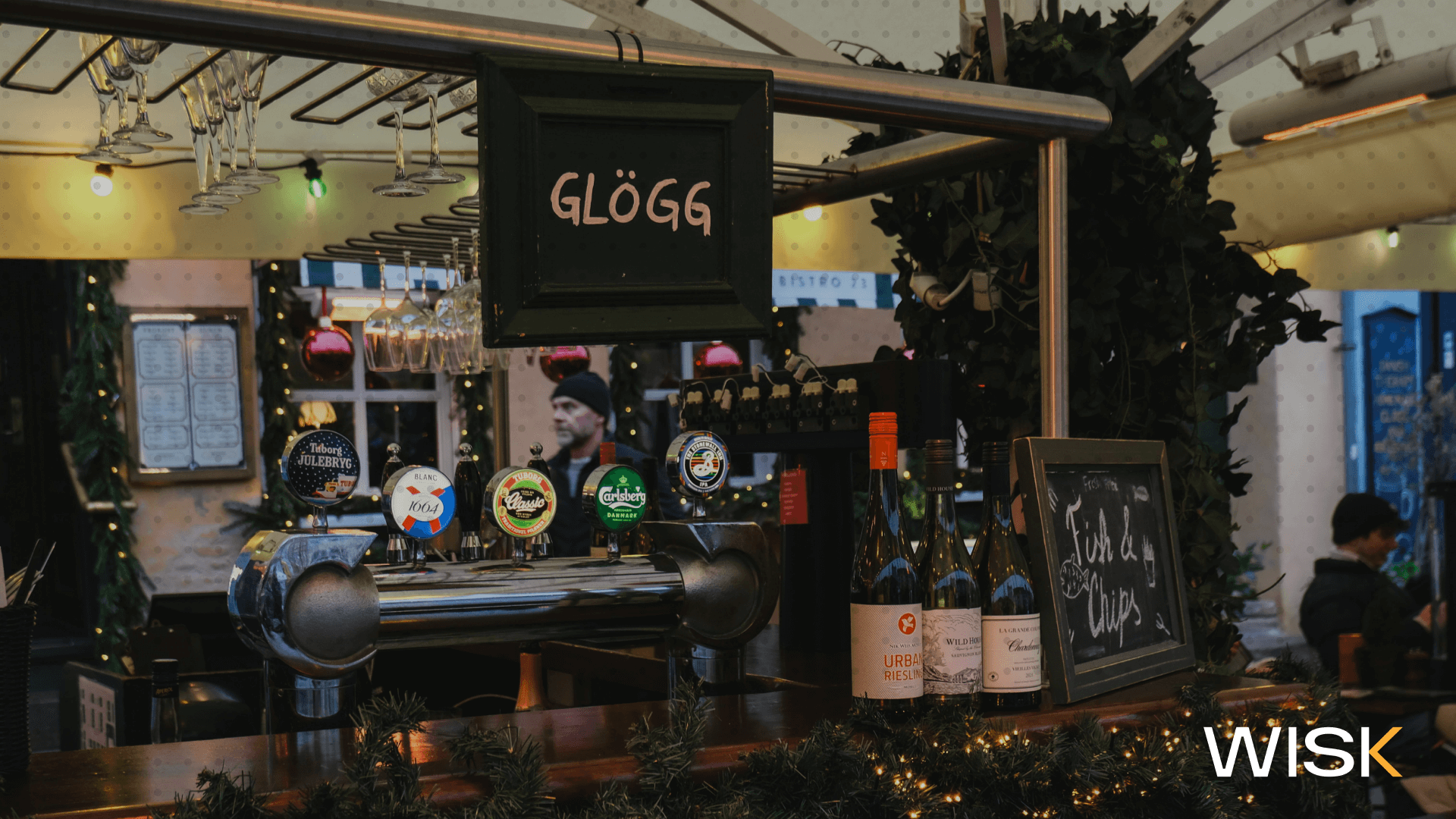Your restaurant's success requires a few non-negotiable elements including a solid business concept, exemplary food, and probably the most significant is having the best restaurant suppliers. Finding and partnering with the right vendors that are distributing food products, beverages, and other essentials is one of the keys to running a sustainable restaurant, but also a difficult task especially because everyone wants the best and freshest food ingredients at the lowest price. The quality of food items and suppliers, as well as how you managed them can make or break your restaurant.
To identify the greatest match for your restaurant, this article will assist you how to choose the ideal suppliers. We'll help you identify the needs, set a perfect budget, utilize local suppliers, food and beverage supplies, and proper food safety that restaurant owners should have. Continue reading!
Local vs Large Vendors? The Best Way for Your Restaurant to Hire Suppliers.
There is no one-size-fits-all supplier arrangement in the food service and hospitality industries. To keep supplies moving, most restaurants rely on a team of food suppliers (Like Gordon Food Service or Sysco). The plan you select will be determined by the type of food you serve as well as your sales, size, and storage facilities. The headcount and expertise level of your workforce will also have an impact on the variety of items you require in your restaurant.
Finding the right combination of price and quality for your restaurant goods is an important factor to consider. That's why we're giving you everything you need to get started. Stay tuned!
The importance of suppliers
Your restaurant suppliers have significant roles in your operation. Supply chains are in everything your staff and customers use. Unless you're building everything from scratch or serving fresh produce from your local farms, food suppliers are a must. Suppliers cover anything from restaurant food to bar supplies. Unpreparedness may result in huge margins of error.
When looking for suppliers, consider the quality of the food and the reputation of the vendors. Overpriced restaurant items may wreak havoc on your budget while making corners on food quality can harm your reputation and drive away customers.
Having the right restaurant suppliers can ensure that your supplies receive on time, assist you in adapting to changes in the business, and provide you with high-quality ingredients for your menus at the best price.
Identifying your needs
Before you open your restaurant doors, make sure that all of your equipment, furnishings, cleaning supplies, and food quality are ready to go. You must also ensure proper food safety precautions and basic restaurant supplies are in place.
It's essential to make a list of everything you'll need to keep your business running. Modest responsibilities, no matter how minor, can have a negative impact on your restaurant brand.
Setting a budget
While high-end equipment and décor are great, you'll likely have to compromise at the beginning, unless you have millions to spend on a five-star facility for a one-stop-shop.
Here are a few points to consider when setting your budget.
- Support staff requirements, such as the number of waiters, bussers, cooks, bartenders, dishwashers, and managers required to keep your customer satisfaction high.
- Employee salaries and any benefits you may be mandated by law to provide, such as vacation days and health insurance.
- The pricing point of your menu items and the margins necessary to turn a business
- Online ordering and pay-at-the-table technologies are two examples of service advancements in your location.
- Rent, utilities, and other recurring costs such as payroll
- Food and paper supplies are delivered on a regular basis.
- Start-up expenses, such as kitchen equipment and furnishings

Evaluating your options
When you know what you need, contact a major supplier to acquire quotations and then start ordering.
Research is vital when weighing your alternatives. Preparing to open a new restaurant—or to remodel or enlarge an existing one—takes considerable planning and research. Just as you wouldn't hire an employee, install a new POS system, or attempt a new menu without due investigation, you should do the same with vendors.
There are two major food providers for your restaurant namely:
- traditional suppliers
- second-hand sales
How long has the company been in business?
While there's no need to turn down a new business, an experienced vendor is more likely to have the connections and business relationships that will benefit the restaurant. Having one or more suppliers or having a large network as a restaurant owner can benefit you in many ways. It can prevent your restaurant from experiencing shortages in supplies and can gain different farmers' market offers whether it's a discount or a freebie.
Relationships matter
A major supplier is an ideal source when it comes to various selections. Choose people you can trust and to who you can depend. When your suppliers treat you well, treat them the same way.
The food and beverage business can be tricky, but having a solid network of so many vendors can make all the difference. An excellent way to start your restaurant off on the right foot is to make sure you have good business partners to help you out.
Do you have any references?
Food suppliers are there to serve you, not the other way around. If you have any reservations about a business, don't be afraid to seek recommendations from other sources, such as nearby restaurants.
Obtain the contact information of another local market that the vendor services and inquire about their experience doing business with them.
Product quality counts
Fresh produce and organic meals from local suppliers are always better than meals that have a short shelf life. Do not be afraid to make sure that your vendors care about the same things as you do.
Your supplier is a major resource that you have with whom you have collaborated. The most important thing to bear in mind is that you must trust that the food vendor with someone you have partnered with is taking proper care of the resources. If you want to ensure that your items are safe when they arrive at your restaurant, there is nothing wrong with doing so.
What are the different types of restaurant suppliers?
Managing various vendors can be so hard in the restaurant industry. You may be wondering how other restaurants find the right food suppliers to buy their food and other essentials.
We've looked at the different types of restaurant food and drink suppliers and how restaurants work with them.
Produce Vendors
Vegetables and fruits are an absolute necessity at any restaurant, whether a vegan fast food joint or a sit-down steakhouse. To meet their specific demands, restaurants utilize the techniques listed to get their ingredients.
Getting major food suppliers like US Foods, Sysco, and Performance Food Group may be easier in larger and busier establishments. Some restaurants employ local farmers, while others, notably those serving organic food, attend local farmers' markets offer. These marketplaces allow restaurant owners to meet local suppliers and buy wholesale prices. The Local Dirt company is one of the first companies that connect restaurants to local farms.
Meat Vendors
There are other restaurants that source their chicken, beef, and pork from local farmers, while others buy from large-scale companies. Large businesses have a network of farmers and butchers that get the meat restaurant-ready and often have greater resources to invest in sensor technology that ensures adequate food safety.
Restaurants may feel more confident choosing this approach since these large corporations offer assurance with their technology systems. However, there are several benefits to obtaining quality meats directly from local farmers or smaller suppliers. Restaurants may establish partnerships with suppliers and receive the freshest and best meats while contributing to the local economy. Those farms may also be more ecologically conscious, which would be beneficial for their animals and the surrounding community.
Seafood
Suppliers of seafood aren't always a one-stop shop. Depending on the type of seafood that your restaurant serves, you may need to work with more than one source to get seafood.
Some fish suppliers exclusively sell fresh seafood sourced locally or globally while other providers specialize in selling frozen varieties. Today's seafood comes from fish farms, with each local farm specializing in a particular variety of fish. The National Oceanic and Atmospheric Administration (NOAA) estimates that half of the fish we consume today is currently farmed.
Dry Goods
Restaurant's dry goods tend to be purchased in bulk from major suppliers such as nuts, grain, flour, and other spices.
Sometimes it may require a unique ingredient for a certain recipe, and may only be available from a specialty supplier. Crossings Fine Foods is a well-known supplier for restaurants in the United States, where they may get wholesale discounts on a type of specialty supplier and items.
Events like the Summer Fancy Food Show in New York, where vendors may meet and discuss ways to source the extra special, dish-elevating ingredients, can also be used by restaurants.
Baked Goods
For restaurants that do not make their baked products, the next best choice is to purchase specialty items from a nearby bakery. However, it is usual for bakeries to serve as suppliers for surrounding outlets for a restaurant's baked goods, which allows them to provide a wider variety of specialty breads, cakes, and other baked goods.
A significant advantage of sourcing such products produce from a local bakery is the higher quality and freshness of the produce. It is increasingly customary for bulk commodities like hamburger buns and white bread from large-scale vendors.
Beer
It is possible to acquire beer for a restaurant's bar through many methods. Most popular, mass-produced beers are available from large-scale suppliers. However, if you have beverage suppliers, you may obtain craft beer distributor or even directly with a popular local brewery to offer their brews at your establishment. Integrating at least two or three of these sources is preferable to ensure that everyone is satisfied.
Spirits
Based on restaurant news, it is most typical for restaurants to get hard liquor and other spirits from big suppliers such as Ultra-Pure and Luxco when purchasing hard liquor and other spirits. These suppliers specialize in a wide range of alcoholic beverages from various manufacturers, so you can be sure to get the choices you need to fill the bar at your restaurant.
However, supporting a local winery and brewery will benefit your restaurant's bar since it's at its best price and quality, and it can help the local economy. A bustling Saturday night service will appear even more impressive.
Equipment and nonperishable supplies
Excessively used equipment tends to break and parts start to deteriorate over time. It's not your fault if your cooler may cease working properly for example because it's simply the result of normal wear and tear of your daily use. A great warranty on the products and a fantastic customer service policy are essential features when acquiring large restaurant equipment.
In addition, make sure to look for reliable suppliers with competitive pricing and, above all, gives you outstanding customer service when it comes to some of the smaller items you'll need on an ongoing basis, such as paper products or janitorial supplies.
To get you started, here's a list of the commercial restaurant materials supplies you'll need to think about, ranging from an in-house operation.
Kitchen cooking utensils and appliances
Preparation equipment, such as stoves, ovens, microwaves, grills, griddles, fryers, pasta cookers, immersion cookers, steamers, and broilers are all examples of kitchen appliances.
Refrigerators, freezers, dishwashers, condensation hoods, heat lamps, soda fountains, espresso machines, and ice makers are examples of kitchen equipment.
Local vs Large Suppliers What's Best for Your Restaurant?
Based on restaurant news which was a report from USDA, there was $6.1 billion worth of local and regional food sales in 2012. And in 2018, there was a 27 % increase in less than five years observed that's up from $1.3 billion to $4.8 billion in total sales reported. Now, this trend is just getting stronger.
NPR says that Chipotle, which doesn't use GMO ingredients, is worth more than the combination of Applebee's, Chili's, IHOP, Olive Garden, TGIFridays, and Red Lobster.
Nowadays, fresh menus and social responsibility have become more important, especially among the Millennials. In marketing strategy campaigns initiatives, taglines with “Food With Integrity” and “Local Grower Support” are given credit.
You may be thinking at this point that it only makes sense to get your restaurant's food from a local grower. While doing so has advantages, there are also many benefits to choosing a major supplier. The truth is that each initiative has its own set of advantages and disadvantages, and whatever way you choose relies on your tastes as well as other criteria relating to your business and its brand.
What are the advantages of using local suppliers?
According to a study, there are a lot of customers who would be prepared to pay more for locally produced food. 61% of Canadians feel eating local food is more important than a separate vendor, and almost half would be willing to pay up to 30 percent more.
Meanwhile, according to a Nielsen survey, 46% of Americans in the United States prioritize buying local. In addition, another incentive for a manager or owner to consider while weighing their options is that 66% of diners want to dine at restaurants where the cuisine comes from the region.
Consider these factors and decide that buying local food is the best option for your restaurant business. Sculpture Hospitality has outlined five main benefits that many restaurants discover when switching to local produce:
Benefit your local community
Buying local supports local businesses and keeps money local. Supporting farmers' markets and commerce improves the local economy, increases jobs, and gives customers more money to spend. Investing in local companies increases the possibility of customers having money to spend.
Fresher ingredients
When your restaurant buys from large suppliers, you get something preserved throughout the travel. Buying fresh food from nearby farms ensures its high quality. The food will be healthier, tastier, and more enticing to your consumers. Better cuisine can help you maintain customers and fulfill revenue goals.
You can establish a local supplier network.
Many small, medium, and bigger supply chains rely on community relationships to succeed. Buying directly from nearby stores allows you to build stronger relationships with local companies, leading to greater future chances for your restaurant.
The Pros Cons of Locally Sourced Food
A lot of people love this word, and having it on your menu is a good thing for people who want to eat healthily. It's often the best thing to buy food that is locally grown produce if your top priority in your restaurant is to serve food that is fresh and high-quality.
According to Localharvest.org, the average travel time for fruits and vegetables in the United States is around 1,500 miles. Food that has been on the road for that long is often not as fresh as food from farms in your city or nearby area. Furthermore, the data suggest that a sizable proportion of customers (up to 34 percent) are willing to pay more for locally sourced food.
The following are some other benefits of purchasing local:
- It is essential to support businesses owned and run by people in your neighboring area.
- It's significant to build up a connection and relationships with local growers and connect with restaurants.
- Many positive things happen when you use "locally grown" on the menu and in your marketing.
- Higher-quality ingredients and fresher food are on the menu.
The Pros Cons of Ordering From Major Suppliers
Although dealing with local growers has numerous advantages, partnering with a national supplier may benefit you in a variety of ways, not the least of which is saving money. A large supply chain can afford to provide discounts, bulk purchases, and sometimes a more comprehensive selection because of the vast distribution of their customers across the country.
As much as we'd all like to support local businesses, many of the things you require can't be acquired or supplied on a regular basis, and you'll have far better luck locating them through national suppliers. Other advantages of using a major supplier include the following:
- As a general rule, large suppliers sell various products, from food and ingredients to cleaning products and more.
- Supply chain management reduces costs and improves the bottom line by streamlining the supply chain.
- You may have to pick up your things from a local farmer, but big suppliers typically offer delivery.
- Because significant suppliers have an enormous selection, you may provide your customers with additional alternatives.
How do you choose a food supplier?
While pricing is usually the most crucial factor to consider when purchasing ingredients for your restaurant, both local farmers and major vendors provide valuable advantages. So, while deciding which one is ideal for you, it's essential to sit down and consider all of the factors and spend some time considering the type of experience you want to deliver to your customers.
Many restaurant owners employ a combination of both approaches, allowing them to gain the benefits of both at the same time. It can be a smart move to have a few specialty meals that you can highlight for their use of fresh, locally produced ingredients.
The supplier decisions you make for your restaurant have far-reaching financial implications. By prioritizing suppliers that provide value and reliability, you'll see your ROI grow as your restaurant's reputation and profitability increase with software that makes your inventory more efficient.




